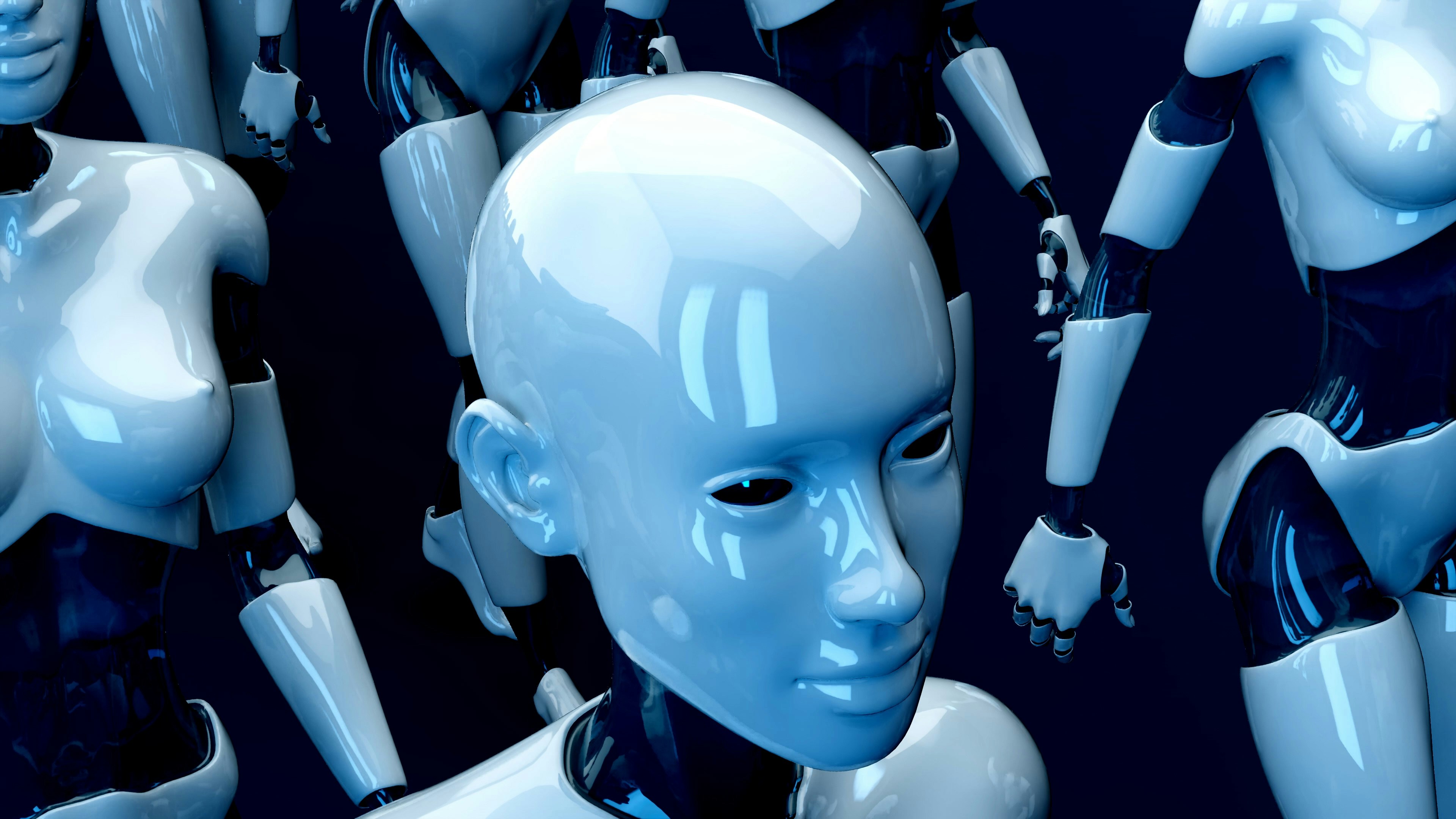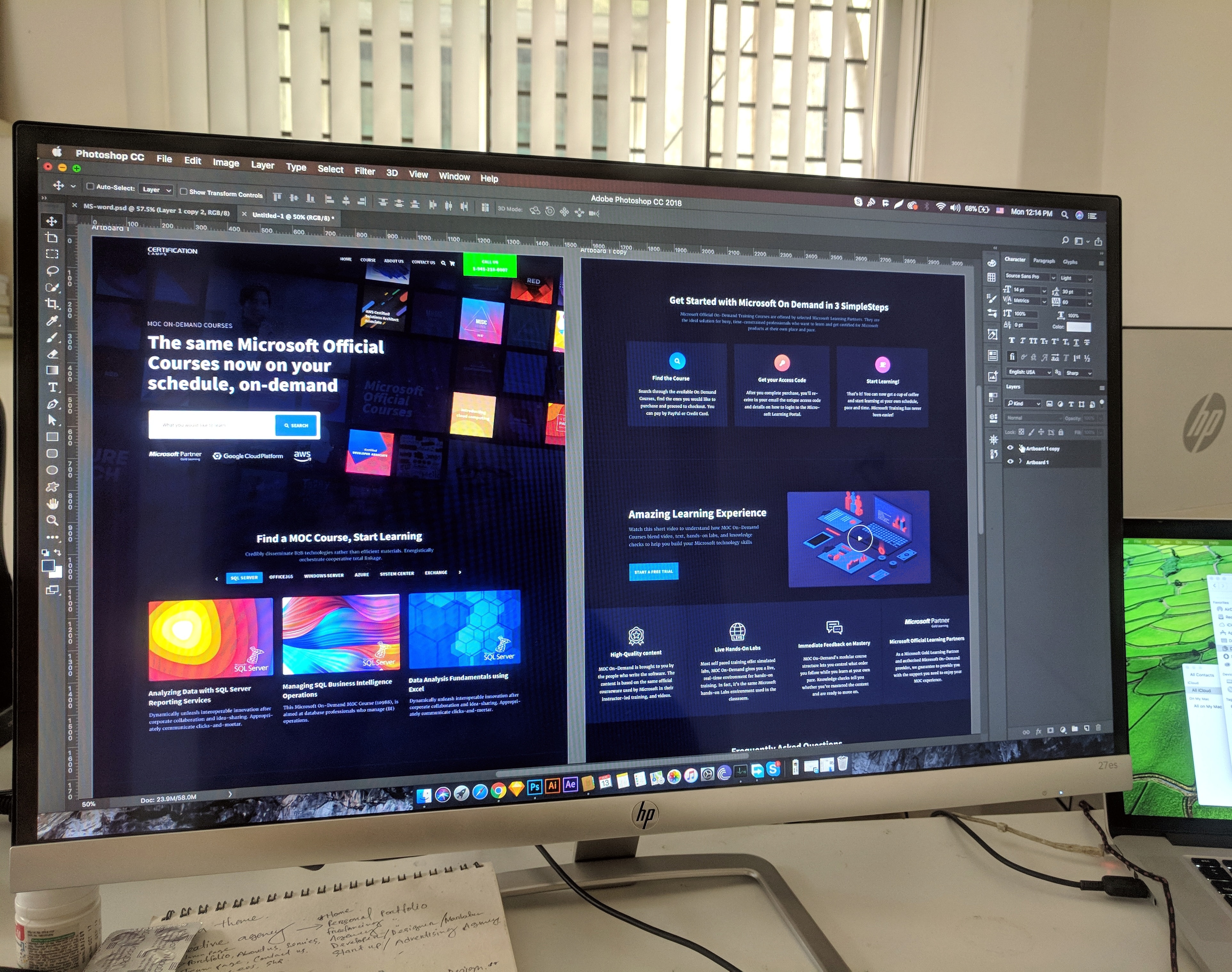Impact of AI and Machine Learning on Web Development
Impact of AI and Machine Learning on Web Development
Oct 24, 2024
Said Aidogdu
The integration of artificial intelligence (AI) and machine learning (ML) into web development has revolutionized how developers create, maintain, and enhance web applications. As these technologies evolve, they are reshaping the web development process, improving user experience, and offering innovative solutions to common challenges faced by web developers. This article delves into the impact of AI and machine learning on web development, exploring current trends, future prospects, and the challenges that come with incorporating these advanced technologies.
How is AI Changing the Web Development Process?
Key benefits of integrating AI into web development
Integrating AI into web development offers numerous key benefits that significantly enhance the overall development process. One of the primary advantages is the automation of repetitive tasks, which allows web developers to focus on more complex and creative aspects of their projects. AI systems can analyze vast amounts of data quickly, enabling developers to make informed decisions based on user behavior and preferences. Furthermore, AI can improve the efficiency of the development process by streamlining workflows and reducing the time spent on debugging and testing. With the impact of AI on web development, companies can achieve faster turnaround times and higher-quality products, ultimately leading to increased user satisfaction and engagement.
How do AI tools improve the development process?
AI tools are at the forefront of enhancing the web development process. These tools utilize machine learning algorithms to assist developers in various tasks, from code generation to error detection. For instance, AI-powered code editors can suggest improvements or automatically correct errors, thus accelerating the software development cycle. Additionally, AI can help in optimizing web applications by analyzing performance metrics and suggesting enhancements to improve load times and responsiveness. The integration of AI tools into the web development process not only boosts productivity but also enables developers to create more robust and scalable applications tailored to user needs.
Role of machine learning algorithms in web applications
Machine learning algorithms play a vital role in the functionality and performance of modern web applications. These algorithms can analyze user interactions and predict future behaviors, allowing for more personalized experiences. For example, e-commerce websites use machine learning to recommend products based on browsing history and purchase patterns, effectively enhancing user experience. Additionally, machine learning can help identify and mitigate security threats by recognizing unusual patterns that may indicate fraudulent activity. The versatility of machine learning models in processing large datasets and deriving actionable insights positions them as essential components of contemporary web development.
What is the Future of Web Development with AI and Machine Learning?
What trends in web development can we expect in 2024?
As we look towards the future of web development in 2024, several trends are emerging that are heavily influenced by AI and machine learning. One significant trend is the increasing adoption of generative AI technologies, which allow developers to create content, design layouts, and even code applications based on simple prompts. Another trend is the rise of no-code and low-code development platforms that leverage AI to enable non-technical users to build applications with minimal coding knowledge. Additionally, the integration of AI into web development will continue to enhance data-driven decision-making, allowing developers to create more intuitive and user-centric applications.
Future of web applications with AI
AI and machine learning are shaping the future of web applications by making them smarter and more adaptive to user needs. With advancements in AI technologies, web applications are becoming increasingly capable of understanding and responding to user interactions in real-time. This includes features such as chatbots powered by natural language processing, which can provide immediate assistance to users and improve customer support services. Moreover, AI-driven analytics tools will allow developers to gain deeper insights into user behavior, enabling them to refine their applications continuously. The impact of AI on web applications will likely lead to a more dynamic and engaging online experience for users.
Potential impact of artificial intelligence
The potential impact of artificial intelligence on user experience is profound. AI can enhance personalization by analyzing user data and tailoring content and features to individual preferences. This level of customization not only improves user satisfaction but also increases user retention rates. Furthermore, AI can streamline navigation through predictive algorithms that anticipate user needs, thus creating a more intuitive browsing experience. Ultimately, the integration of AI into web development is set to redefine user experience, making it more engaging, relevant, and efficient.
Does Machine Learning Improves UX in Web Development?
Examples of machine learning in web development
Machine learning is increasingly being utilized in various aspects of web development to improve user experience. For example, recommendation systems on e-commerce platforms are powered by machine learning algorithms that analyze user behavior and suggest products that align with individual preferences. Additionally, AI-driven chatbots are becoming prevalent in customer service, using natural language processing to understand and respond to user inquiries effectively. Another example is the use of machine learning in image recognition for social media platforms, where algorithms categorize and tag images automatically, enhancing user interaction. These examples illustrate the significant role of machine learning in creating more responsive and personalized web applications.
Can AI improve personalization for website visitors?
AI can significantly enhance personalization for website visitors by utilizing data analytics and machine learning models to tailor content and experiences to individual users. By monitoring user interactions, AI algorithms can determine preferences and behaviors, allowing websites to present relevant content, products, or services. For instance, streaming services leverage AI to analyze viewing habits and recommend shows or movies that align with users' tastes. Similarly, news websites can curate articles based on readers' interests, ensuring that visitors are engaged with content that resonates with them. This level of personalization not only enriches user experience but also fosters a deeper connection between users and the brand.
Benefits of using AI for user interface design?
Utilizing AI in user interface (UI) design offers numerous benefits that can streamline the web development process and enhance user experience. AI can analyze user interactions and preferences, providing insights that inform design decisions. For instance, AI algorithms can identify the most intuitive layouts and color schemes based on user feedback and engagement metrics. This data-driven approach allows for the creation of more effective and appealing interfaces. Moreover, AI can facilitate A/B testing by automating the process of comparing different design variations, enabling developers to optimize user interfaces quickly and efficiently. As a result, the use of AI in UI design can lead to more user-friendly and aesthetically pleasing web applications.
Challenges Web Developers Face When Integrating AI
Common obstacles in web development when using AI
Despite the numerous benefits of integrating AI into web development, several challenges persist. One common obstacle is the complexity of implementing AI tools, which often requires specialized knowledge and expertise in machine learning and data analysis. Many web developers may find it challenging to navigate these intricacies, leading to potential delays in the development process. Additionally, there can be concerns regarding data privacy and security, as AI systems often rely on large datasets to function effectively. Ensuring compliance with data protection regulations while leveraging AI technology can pose a significant challenge for developers.
How can developers overcome integration issues with AI?
To overcome integration issues with AI, developers can take several proactive measures. Firstly, investing in training and education on AI and machine learning can equip developers with the necessary skills to effectively utilize these technologies. Online courses and workshops can be invaluable resources for gaining insights into AI tools and best practices. Additionally, collaborating with data scientists and AI specialists can facilitate smoother integration, as these experts can provide guidance on implementing AI algorithms and managing data effectively. By fostering a culture of continuous learning and collaboration, web developers can navigate the complexities of AI integration more efficiently.
What skills do web developers need to effectively use AI?
To effectively use AI in web development, developers need a diverse skill set that encompasses both technical and analytical abilities. Proficiency in programming languages such as Python and JavaScript is essential, as these languages are commonly used in AI development. Furthermore, a solid understanding of machine learning concepts, algorithms, and data structures is critical for leveraging AI tools effectively. Additionally, developers should have experience with data analysis and visualization techniques, as these skills allow them to interpret data insights that inform design and development decisions. Finally, a strong grasp of user experience principles will enable developers to create applications that resonate with users while utilizing AI technologies.
How is Artificial Intelligence Transforming Website Development?
Most impactful AI technologies in website development?
Several AI technologies are making a significant impact on website development, transforming how developers approach their projects. Natural language processing (NLP) is one such technology that enhances user interaction by enabling more intuitive communication between users and web applications. AI-driven analytics tools also play a crucial role, providing developers with real-time insights into user behavior that can inform design and functionality. Additionally, deep learning techniques are being utilized to improve image and video processing, enhancing the visual aspects of web applications. The combination of these AI technologies is paving the way for more advanced, user-friendly, and efficient web development practices.
Natural language processing in web applications
Natural language processing (NLP) enhances web applications by enabling them to understand and process human language more effectively. This technology allows developers to create features such as chatbots and virtual assistants that can interact with users in a conversational manner. By leveraging NLP, web applications can provide personalized support, answer queries, and guide users through processes seamlessly. Moreover, NLP can be used to analyze user feedback and sentiment, allowing developers to refine applications based on user preferences and experiences. The integration of NLP in web applications not only improves user experience but also fosters greater engagement and satisfaction.
Significance of deep learning in modern web development
Deep learning plays a significant role in modern web development by enabling the creation of more sophisticated AI applications. This subset of machine learning utilizes neural networks to analyze vast amounts of data and identify patterns that traditional algorithms may overlook. In web development, deep learning can enhance image recognition, automate content generation, and improve recommendation systems, resulting in more personalized and engaging user experiences. As deep learning technologies continue to advance, their integration into web development will likely lead to even greater innovations, transforming how developers create and manage web applications.






















